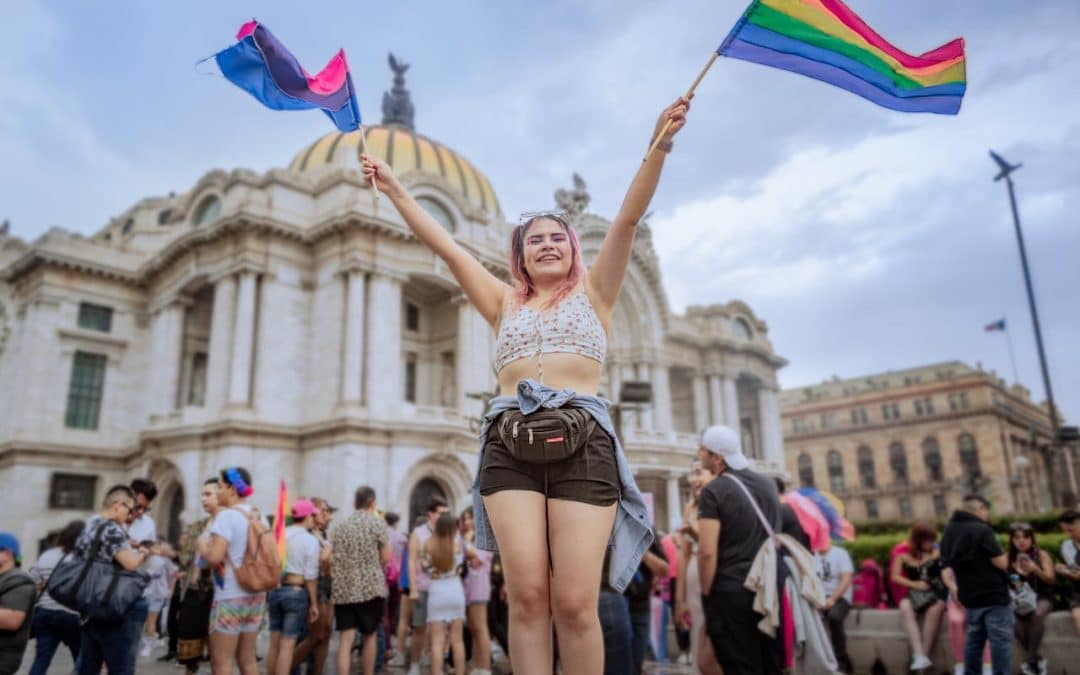Bisexuality | LGBTQ+ Therapists | Myth Busting
It’s Bisexual Awareness Week! Bi+ identities continue to be misunderstood and misrepresented both by straight society as well as within the LGBTQ+ community, but bi folks deserve better. As always, we’re here to bust stigma and set myths straight.
A lot has already been written about the absolute myths that bi folks are promiscuous, indecisive, unable to commit, ambivalent gay men, or women performing for the male gaze. These stereotypes still exist! But I wanted to address a few specific myths that I think get less attention, but still come up, even among members of the queer community or bi+ folks themselves.
Myth: Real bisexuality means being attracted to men and women in equal measure.
Bisexuals are a huge group, making up up 40% of the LGBTQ+ community. Within that group, bisexuality contains a wide range of experiences, attractions, and identities. Sexual identity isn’t a binary.
We use the shorthand bi+ to refer to the umbrella of anyone who is attracted to two or more different genders. That includes folks who identify themselves as bisexual, pansexual, and many people who choose the more general term queer.

There’s a common misconception that people who choose the term ‘bisexual’ are attracted to cisgender men and women, while people who choose the term ‘pansexual’ are attracted to folks all along the full gender spectrum. That may be true for how some people identify themselves. But it’s certainly not how many bi and pan people use those terms. And this myth can be used to paint bisexuality as inherently binary and transphobic.
A more accurate definition would be to say that bisexual people are attracted to two or more genders. That attraction may not feel the same. It may not be equally intense or frequent, or be acted on in the same ways. Pansexual people, on the other hand, often describe themselves as attracted to others regardless of their gender. Some people use both bi and pan to describe themselves.

Myth: Bisexual people have more privilege than other queer folks.
Privilege is a complex and multilayered phenomenon, and some bisexual people may indeed be shielded from some forms of harm while in a straight-presenting relationship. (Other queer folks experience ‘passing privilege’ in certain contexts as well!)
However, the myth that bisexual people are, as a group, safer and more privileged than gays and lesbians isn’t just wrong, it’s harmful. Stigma and bi erasure mean bisexual people face discrimination in heteronormative society as well as in the LGBTQ+ community. They’re less likely to have the social support that supports resilience in the face of oppression.
That shows in data on a variety of indicators of health, safety and wellness. Bi+ people report higher levels of trauma than monosexual (exclusively straight or gay) counterparts, including childhood sexual and physical abuse. They also are more likely to experience domestic or sexual violence as adults. Bisexuals also experience higher levels of poverty, elevated rates of substance abuse, and worse physical health outcomes than monosexuals.
Myth: Coming out as bi+ is ‘pointless’ if you’re in a long-term committed relationship.
I’ve spoken with clients (and friends!) who struggle with whether or not to come out as bisexual to family and friends, given that they’re already in a long-term committed relationship. Obviously, the decision to come out or not is highly personal, and your sexual orientation is valid regardless.
However, there are a number of reasons that bi+ folks choose to come out, even if they’re settled into a long-term relationship, including:
- Wanting to be genuinely seen and understood by the people they love
- Wanting to be a positive example for younger queer (or potentially queer) family members
- Avoiding the hurt that can come with incorrect assumptions being made
- Considering the possibility of non-monogamy to explore different attractions
- Taking a personal or political stand against bi-erasure
- To be able to access support and connection with other bi+ and queer people
As we celebrate Bisexual Visibility Day, it’s a time to shine a light on the complexities and diversity within the bi+ community, while challenging the persistent myths that surround it. Bisexuality isn’t a binary or one-size-fits-all experience. Bi+ people deserve to be seen, respected, and supported in the fullness of their identities. Whether you’re in a long-term relationship, navigating attraction to multiple genders, or finding your place within the LGBTQ+ community, your identity is valid.
Let’s continue to break down harmful stereotypes, uplift bi+ voices, and work toward a more inclusive understanding of queer identities for all.

About The Author
Maya Borgueta, PsyD, is a clinical psychologist and the founder of Stella Nova Psychology. She provides online therapy for women and nonbinary professionals, with a focus on supporting women of color and members of the LGBTQ+ community. Her specialties include workplace trauma, self-criticism and self-compassion, and mental health support for adult children of immigrants.
Interested in working with Maya? Schedule a free, 20-minute phone consultation to get started today.
Subscribe To Our Newsletter
Want more valuable mental health content? Keep in touch with Stella Nova by subscribing to our mental health newsletter. We share valuable tips and information twice a month, as well as periodic practice updates, upcoming events, and discounts.
When you sign up, you’ll also receive a copy of our free Preparing for Therapy mini-workbook to help you get ready to get the most out of your experience.


